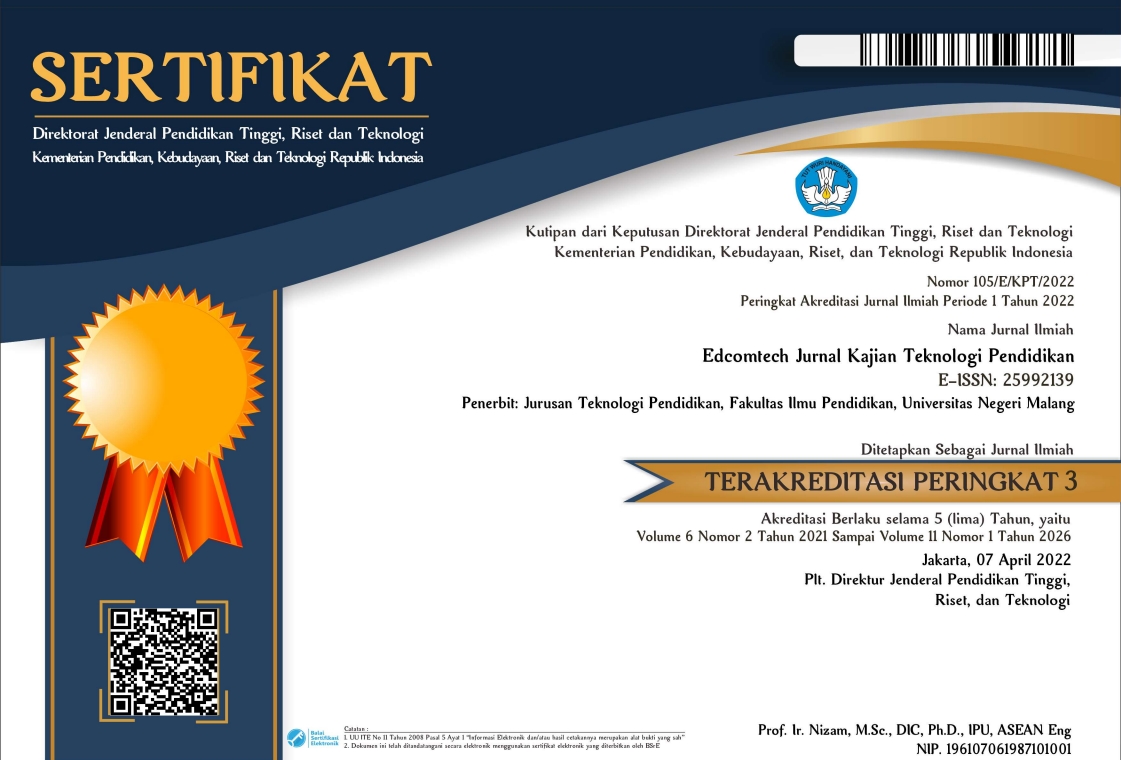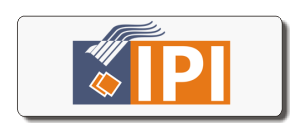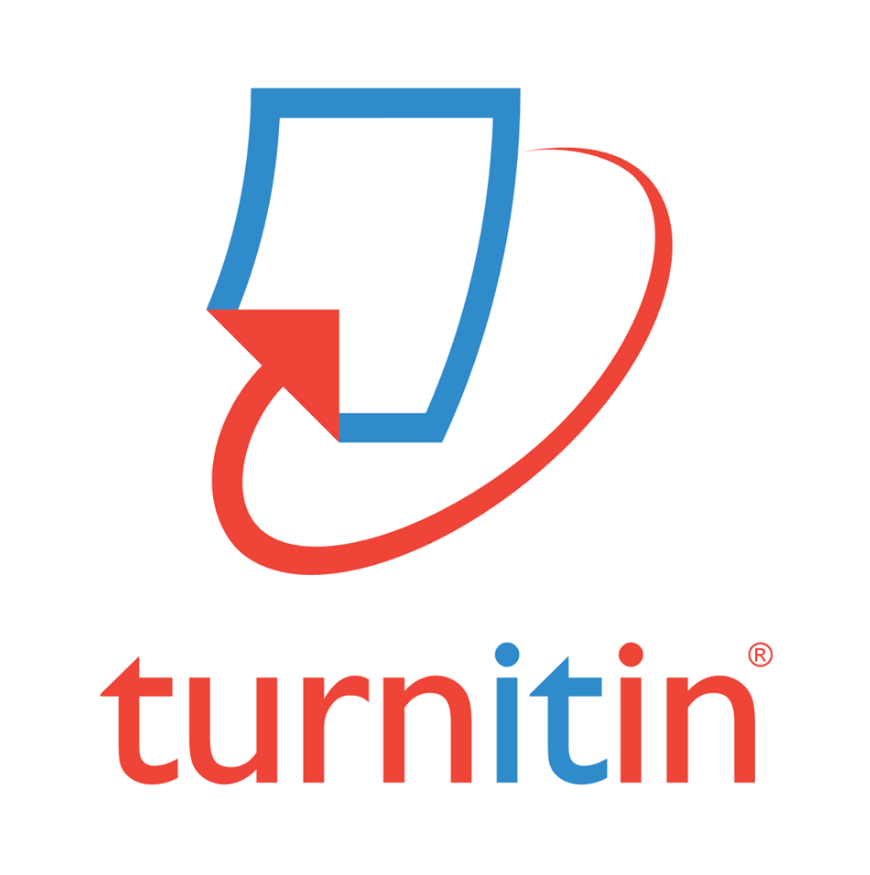Developing Connectivism Learning in Social Learning Platform Using Addie Instructional Design Model
Abstract
Full Text:
PDFReferences
Bell, F. (2010). Network theories for technology-enabled learning and social change: Connectivism and actor network theory. In Networked Learning Conference 2010: Seventh International Conference on Networked Learning. Retrieved from http://usir.salford.ac.uk/9270/?utm_source=twitterfeed&utm_medium=twitter
Bessenyei, I. (2008). Learning and teaching in the information society. Elearning 2.0 and connectivism. Information Society, R. Pinter (Ed), Ed. Gondolat, 9, 1–14.
Branch, Robert M. (2009). Instructional Design: The ADDIE Approach. New York: Springer.
Chung, K. S. K., & Paredes, W. C. (2015). Towards a Social Networks Model for Online Learning & Performance. Educational Technology & Society, 18(3), 240–253.
Cliff Lampe, et. al. (2011). Student use of Facebook for organizing collaborative classroom activities. Computer-Supported Collaborative Learning (2011) 6:329–347. USA: Springer.
Dixon, Marcia D. (2010). Creating Effective Student Engagement in Online Courses. Journal of the Scholarship of Teaching and Learning, Vol. 10, No. 2, June 2010, pp. 1 – 13. (Online). URL josotl.indiana.edu/article/download/1744/1742.
Dwyer, Catherine; et.al. (2007). Trust and Privacy Concern Within Social Networking Sites: A Comparison of Facebook and MySpace. AMCIS (Americas Conference on Information Systems) 2007 proceedings. Paper 339.
Kop, Rita & Adrian Hill. (2008). Connectivism: Learning Theory of The Future or Vestige of The Past. International Review of Research in Open and Distance Learning. 9 (3). 1- 13.
Lai, C., Lei, C., & Liu, Y. (2016). Tablets@university: The nature of collaboration and perceived learning in wiki-based collaborative writing. Australasian Journal of Educational Technology, 32(3), 80-95.
Pettenati, Maria Chiara, et. al. (2007). Using Social Software for Personal Knowledge Management in Formal Online Learning. Turkish Journal of Educational Technology. 8 (3). 52 -65.
Puzziferro, Maria & K. Shelton. (2012). A model for Developing High-Quality Online Course: Integrating A Systems Approach with Learning Theory. Journal of Asynchronous Learning Network. 12 (3-4). 119 - 136.
Siemens, George. (2005). Connectivism: A Learning Theory for the Digital Age. Elearnspace. Retrieved October 12, 2015, from (http://er.dut.ac.za/handle/123456789/69)
Trna, Josef & E. Trnova. (2013). Implementation of Connectivism in Science Teacher Training. Journal of Educational and Instructional Technology Studies in The World. 3 (1). 191 - 196.
Zheng,L., Huang,R., Hwang, G.-J., & Yang, K. (2015). Measuring Knowledge Elaboration Based on a Computer-Assisted Knowledge Map Analytical Approach to Collaborative Learning. Educational Technology & Society, 18 (1), 321–336.
Refbacks
- There are currently no refbacks.
Copyright (c) 2017 Taufik Ikhsan Slamet, Dedi Kuswandi

This work is licensed under a Creative Commons Attribution-ShareAlike 4.0 International License.
Edcomtech: Jurnal Kajian Teknologi Pendidikan published by Department of Educational Technology, Faculty of Education, State University of Malang in Collaboration with Asosiasi Program Studi Teknologi Pendidikan Indonesia (APS TPI) and Ikatan Profesi Teknologi Pendidikan Indonesia (IPTPI) with MoU.
Publisher Address:
Lab. Teknologi Pendidikan, Gd.E2, Lt.1
Fakultas Ilmu Pendidikan Universitas Negeri Malang
Jalan Semarang No 5, Kota Malang Kode Pos 65145
Email: edcomtech.fip@um.ac.id
========================================================================================================
| INDEXED BY | TOOLS | PLAGIARISM CHECK | ARTICLE TEMPLATE |
|

Edcomtech is licensed under a Creative Commons Attribution-ShareAlike 4.0 International License.
Edcomtech Statistics (Since July 13th, 2020)











1.png)








